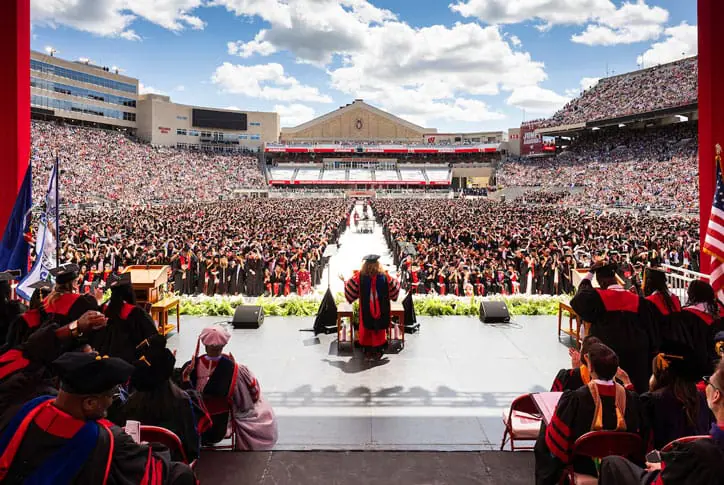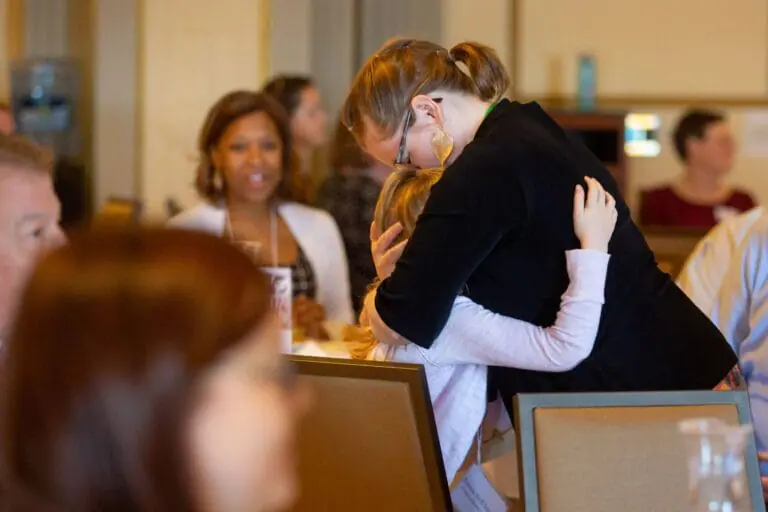
Accessing higher education as an adult
Even though summer often indicates a break from school, June ushers in National Higher Education Day. This annual event focuses on the accessibility of higher education and aims to prepare students scholastically and financially to achieve their college goals.
At Continuing Studies, we aspire to make higher education more accessible to a variety of students outside the traditional undergraduate population, and that includes returning adult students like Dora Aranda.
Dora faced numerous barriers as a nontraditional student going back to school, including health struggles, family issues and financial challenges. But with support and resources, she just completed a bachelor’s degree in biochemistry at UW–Madison and is striving to expose more women and people with underrepresented backgrounds to STEM fields.
“My dream ever since I was a little girl was to be a scientist,” she said. “I can’t wait to be in the industry.”
How can students like Dora access the education they need to thrive, and how can universities and colleges be more accessible?
Flexibility. Returning adult students often have full-time jobs, families and other responsibilities in addition to studying for school. They need flexible class schedules, fewer on-campus requirements and structured curriculum. Online courses and degree programs help, as do weekend and evening options or hybrid programs. The key is to provide ways that make it easier to fit school into an already full life.
Transfer credit. Many colleges and universities are adapting to meet the needs of returning adult students by offering credit for prior learning. If you earned college credit from an accredited institution, there’s a good chance you can transfer that credit to a new degree program. Many students find community colleges a great option to save money and transfer credit to an institution that offers bachelor’s degrees.
Financial aid. Tapping into scholarships and aid can be key for any student, including those coming back to school as adults. Dora received a UW–Madison Outstanding Undergraduate Returning Adult Student Award to help fund her education. Students can look for scholarships outside of school at community centers or with small or large businesses or organizations. Working adults might also ask their employers if they provide funding for education. And of course filling out the FAFSA and applying for financial aid from the government is encouraged.
Support systems. Heading back to school after a break in education can be daunting, and most colleges and universities offer academic advising, tutoring help and career counseling to their students. Community and peer networks can also play an important role in helping learners navigate unique challenges. Students can access places such as disability, veteran or multicultural centers to find affinity groups and resources.
To celebrate National Higher Education Day, congratulate a returning adult student for their perseverance and determination. If you’re ready to go back to school, contact us, and let’s have a conversation about how you can better access the education you need to meet your goals.

The Lifelong Learner is a monthly feature written by UW–Madison’s Continuing Studies staff. Moira Kelley is a communications manager at UW–Madison Continuing Studies Adult Career and Special Student Services and can be reached at moira.kelley@wisc.edu. This article was first published in the Wisconsin State Journal on June 9, 2024.
Published on Jun 10 2024
Last Updated on Jun 10 2025
Categories: Adult Career and Special Student Services, News
Next Post
Meet 3 summer scholarship students
Previous Post
Students share favorite summer study spots



